This is a question that has been raging in our culture for the past several decades. Many of use are told, yes universities are worth the money by parents, teachers, T.V. programs, etc. However, we also are often told that the prices are simply outrageous or you’ll be in debt for the rest of your life! It’s true, quite often you will be in debt the rest of your life, is it worth it?
Statistics (Kinda)
Statistics on the income/debt of a nation is up for interpretation. Since there is such a large set of diverse groups of people and there are so many factors regarding income it is difficult to shed light on the subject, however I will give it my best.
According to the Institute of Education Sciences the average educated individual between 25 – 34 with a bachelor’s degree or higher will make ~31% more than those who do not hold a similar degree (the “total” bars)[1]:
It’s also interesting to note that the average earnings of those with a high school diploma is ~23.5% less than those with a two year associates degree. Of course, these graphs do not mean all that much. Those with higher degrees clearly make more money, but what about the cost (from NCES as well)[2]:
With a loan at somewhere between 5.5% and 8% and four years of college, assuming some summers are spent at internships and perhaps a scholarship or two, it is fair to say that a student will likely graduate with ~$100,000 of debt if they went to an “average” university (and took loans). The $100,000 figure can vary wildly however, with parents pitching in, or taking part of the education at a two year institution it is reasonable to graduate with less than $50,000 of debt. Therefore, I will avoid making any generalizations on the cost of attending college, but rather focusing on the the variance in cost and salaries.
For instance, someone who attends a university such as MIT will likely receive much better offers than those who attend The University of Montana – Western (I had to look that one up). For comparison purposes, the Wall Street Journal published a ranking of colleges based on type (i.e. Engineering, Party, etc.), in this case it is representative of the wild variations in salaries upon exiting college [3]:
As you can see, the range of starting median salary can range any where between $46,200 – $75,500, that’s a pretty large gap! This likely stems from the fact many universities specialize in various forms of degrees, such as Aerospace Engineering, Education, Computer Science, etc. Take the top “party” school at in the Wall Street Journal list – University of Illinois at Urbana Champaign, the starting salary from the engineering college there varies just as wildly as between universities[4]:
Just in the Engineering college at the University of Illinois the average starting salary can range between $53,718 – $81,118. Further, the University of Illinois drastically beats the national average (according to an NACE survey)[5] and the variety of starting salary between majors varies even more dramatically[6]:
One interesting thing to note about the graph above is the percent decline in average salaries for the Computer Science discipline. I would argue (since I have very little evidence to back it up) that the decline comes from subpar institutions handing out degrees. It is a “growing field,” with an estimated 15-22% job growth over the next 10 years [7][8] and I suspect there are significantly more universities attempting to offer degrees where more money could be made, and thus more people apply even if it is a subpar university. Most of the following paragraph is speculation and therefore unfounded, read/interpret at your own discretion.
The little evidence I have to back this statement is that there are roughly as many Computer Science[9] program offers as Nursing[10] programs.Yet, (subjectively) a good Computer Science program requires a high amount of maintenance (for all the computing power), a hefty amount of upper level Mathematics (often community colleges will hand out associates degrees in C.S. without any math), and highly paid professors (since many could make hundreds of thousands of dollars if they went into industry). As opposed to nursing, which although requires a large amount of resources as well, Biologists are not nearly as well paid as PhDs in Computer Science in industry and thus in education as well. To me this seems to make many Computer Science majors from community and poor colleges to be under qualified for tasks in the software development field. Which means they will be paid less.
Analysis
Upon reviewing the data, it is clear that much of the statistics are up to interpretation and can change based on bias analysis. However, one thing that seems clear is that where a person attends and what they are going for does matter the most. That being said, if someone attends MIT for an engineering degree they are likely to make two-and-a-half times as much starting than the average person with just a high school diploma.
If you look at the world today that does not really seem to be all that shocking, but it’s not the full story. There have been more than enough entrepreneurs who dropped out of colleges to start their own companies, Bill Gates and Mark Zuckerberg just to name a few. However, it should be noted that many successful business men who do not go or finish to college and start their own company either have parents to help them (financially or with connections) or a network of connections.
There are no clear statistics/analytics that point to college being the deciding factor in a persons success. What a college does seem to provide is a way to improve the potential to make more money (given you go to the right university and the right major). It is not cost effective to go to every college nor for every major. If you go to an average college for as a Humanities major, on loan you should reconsider. At an average of $37,791 starting salary with an average of $50,000 – $100,000 (at 5.5% – 8% interest) on loans you are going to be in big trouble. However, if you attend MIT, CIT, UIUC, etc. major universities with high starting salaries as an engineer you will end up being alright with $50,000 – $100,000 loans at 5.5% – 8% interest.
With the qualitative analysis in mind, it seems relatively straight forward that it’s on a case-by-case basis on whether or not going to college is the right decision. Simply having a degree will increase your chances of making money, however where you obtain the degree matters far more. If you are interested in the Humanities perhaps a junior college and night classes will be better while you are working to keep the loans down. On the other hand if you want to be an Aerospace Engineer, Nuclear Engineer, Mathematician, Computer Science Researcher, etc., it is very difficult to obtain that skill set outside of a major institution. That being said it is not impossible, the greatest thing a University can offer you (as far as I have seen) is credibility and a network of friends/colleagues to help you find/support you in jobs.
Other Options
Studying at a college/university does not mean you are qualified. Sure, the university (if accredited) will give you a certificate claiming that you know the material to obtain their degree. This does not mean that you have not cheated or that the university has taught you the proper material for a given job. For example, obtaining an MBA (Masters in Business Administration) Harvard means you much more likely have learned more than an MBA degree from Claremont Graduate University. The point being, each and every person is in charge of their education, a university only provides you with accreditation not knowledge and each colleges accreditation means something different.
For majors relating to applications, such as speaking a Language, Mathematics, Engineering, etc. being self taught could be an option. Not having an accreditation from a university/college will often hurt your initial applications, but if you can “show your stuff” so to speak, you can over come the lack of accreditation because your knowledgable and can “get the job done” (they will also likely pay you less, but since you don’t have loans…). The point being, being self-educated in a field can be just as useful as having a degree and after several jobs and years of experience they may not even look at where you went to school (experience trumps education).
One particularly interesting case to review would be Scott Young, who spent a year taking (roughly) every course a Computer Science major would take at MIT[11] in a four year program. He did this by studying very well and a ridiculous amount, and passed similar exams that the MIT students would take. Now, I believe, his income comes from his book sales and blog revenue explaining how he learns so efficiently. Further, websites such as Coursera and Udacity offer online courses similar to those taught at the major universities of the world. Offering education for free, but with no accreditation (meaning you’d have to “show your stuff”).
Personal Story
In high school I did not intend to ever go to a university (currently I am attending the University of Illinois). My goals were to attend a community college, work, and then start a small company while I continued to learn on my own. The problems with that idea hit me Junior year of high school, when I had several teachers speak to me and push me to do better. More or less, I decided/was informed that I needed to attend a University because I needed an accreditation to back up my ability. The world is a pretty impersonal place, I would never be able to obtain a loan or an investor if I never attended a college, they would laugh me out the door.
I therefore worked hard my senior year obtaining a 3.2/4.0 GPA. I then went to a junior college for two and a half years because I originally wanted to be a Chemical Engineer before switching to Computer Science, the total cost was zero since I worked, GPA 3.4. After junior college I transferred to the University of Illinois for Computer Science in the College of Engineering, total cost will end up being ~$75,000 since I’m sticking around an extra semester more or less to do some cool stuff (i.e. research and a couple graduate classes).
For me, this was more than worth it:
- I did not have a group of connections and am friends with people working in most major technology companies
- I now have a few professors who I speak with regularly
- I am chair of the Special Interest Group for Biology in the UIUC chapter of ACM (Association for Computing Machinery)
- I am treasurer of the UIUC chapter of ACM
- I do research in computer vision (hoping to publish a paper this late fall/early spring)
- I have a nice internship with Capital One
- I have the credentials and accreditation to do what I want when I want
Most importantly, going to a university enabled me to identify the major difference between the “haves” and the “have nots” at least intellectually. The students at a University (at least UIUC) believe anything is possible, they are not stuck in a fixed mind set. The majority of individuals I know who only received a high school diploma, a degree from a junior college (and not a university) and/or only spent a few years at a regular college before dropping out all seem to be “stuck.” They do not believe the world is wonderful or that they can change it, where as students at the major universities encourage risks, those who are not at universities put you down or simply dismiss.
Closing Sentiment
If someone has enough desire they can reach their goals, regardless of educational background.
A friend of mine, writes a similar blog and I would venture he is much more educated than the majority of people who attended UIUC or equivalent universities. He only has a GED and a year of miscellaneous classes at a community college, yet did well on the Google Summer Code project in (I believe) 2012 and has (I believe) the ability to be successful being employed, if he wanted to.
Personally, I believe going to a university was the right decision for me, but not for everyone. The real key is a close, unbiased analysis of your circumstances and your goals. I feel I could have achieved my goals without attending a university, but it would have been much harder, on the other hand for some less driven people it may have been impossible.
When deciding your future your opinion is the only one that counts, just make sure you contemplate your decisions carefully.

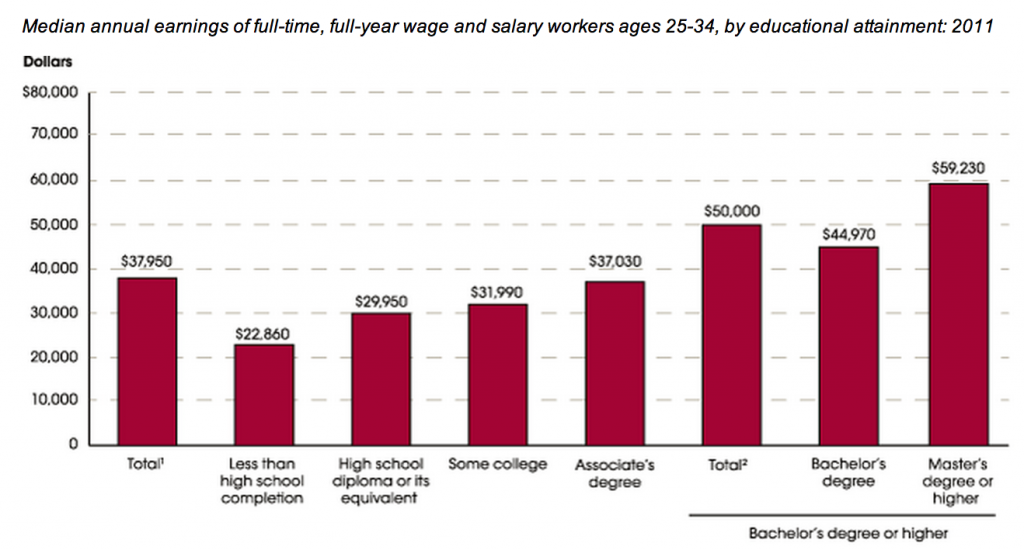
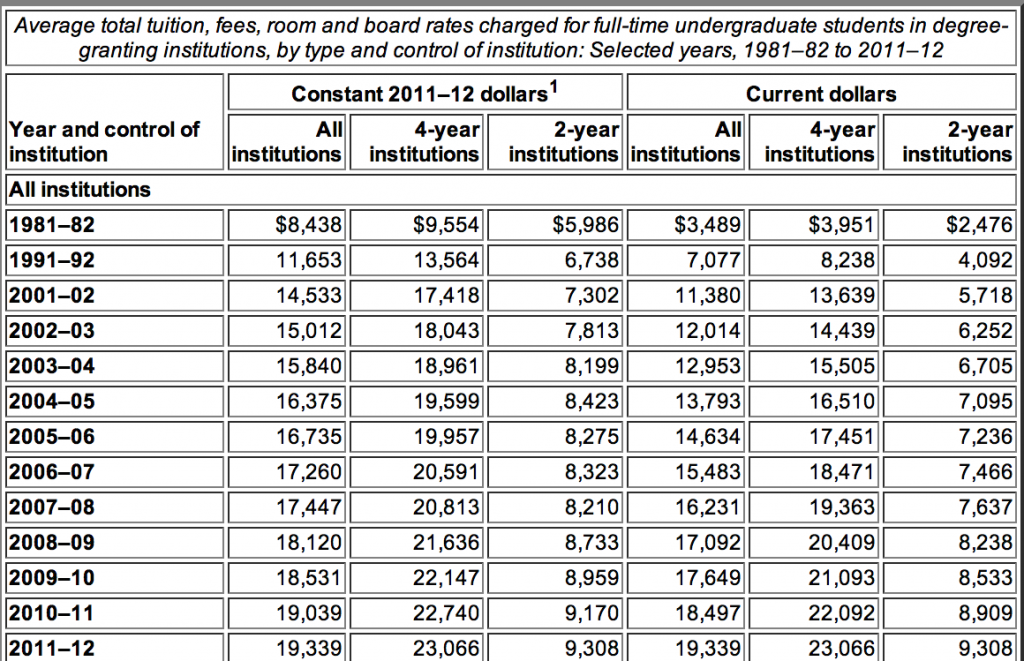
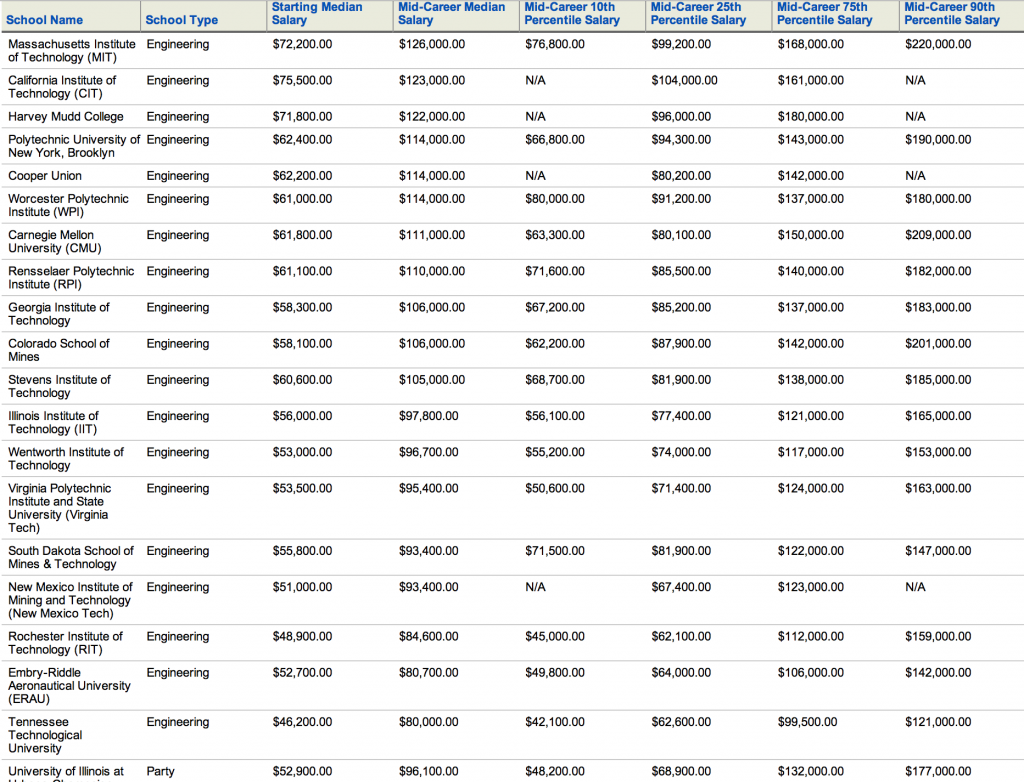
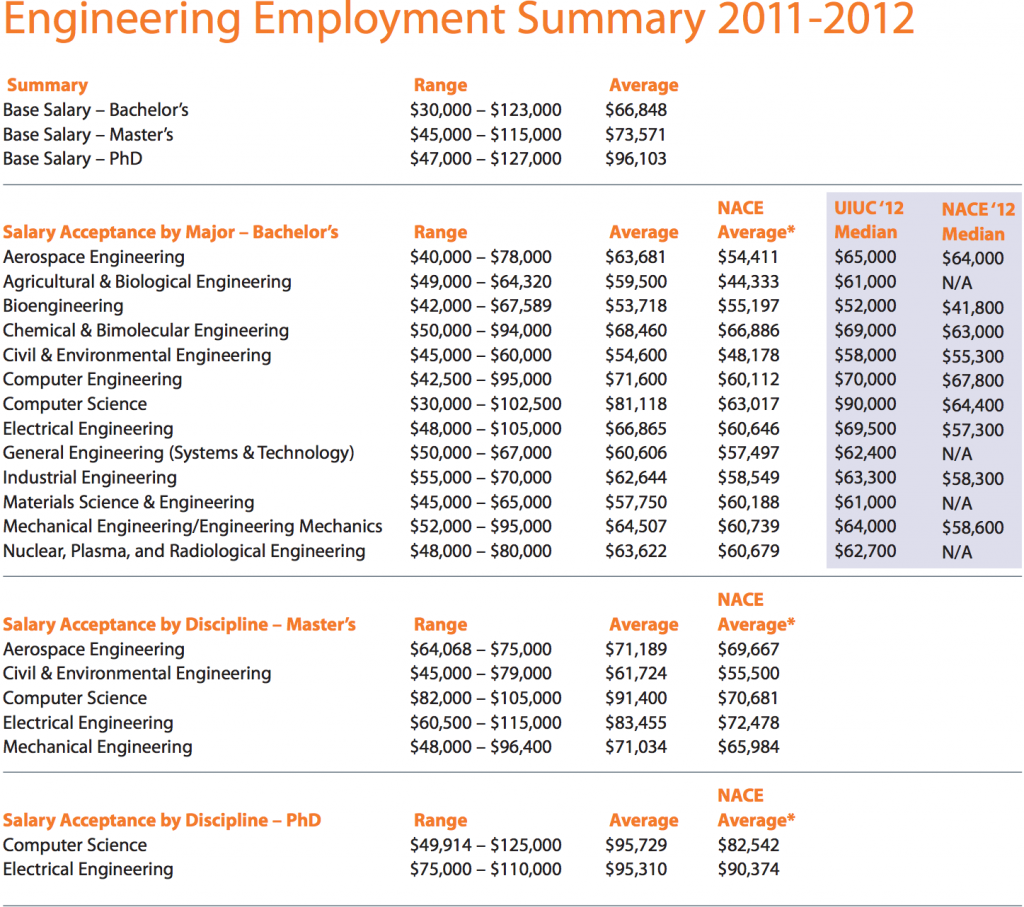
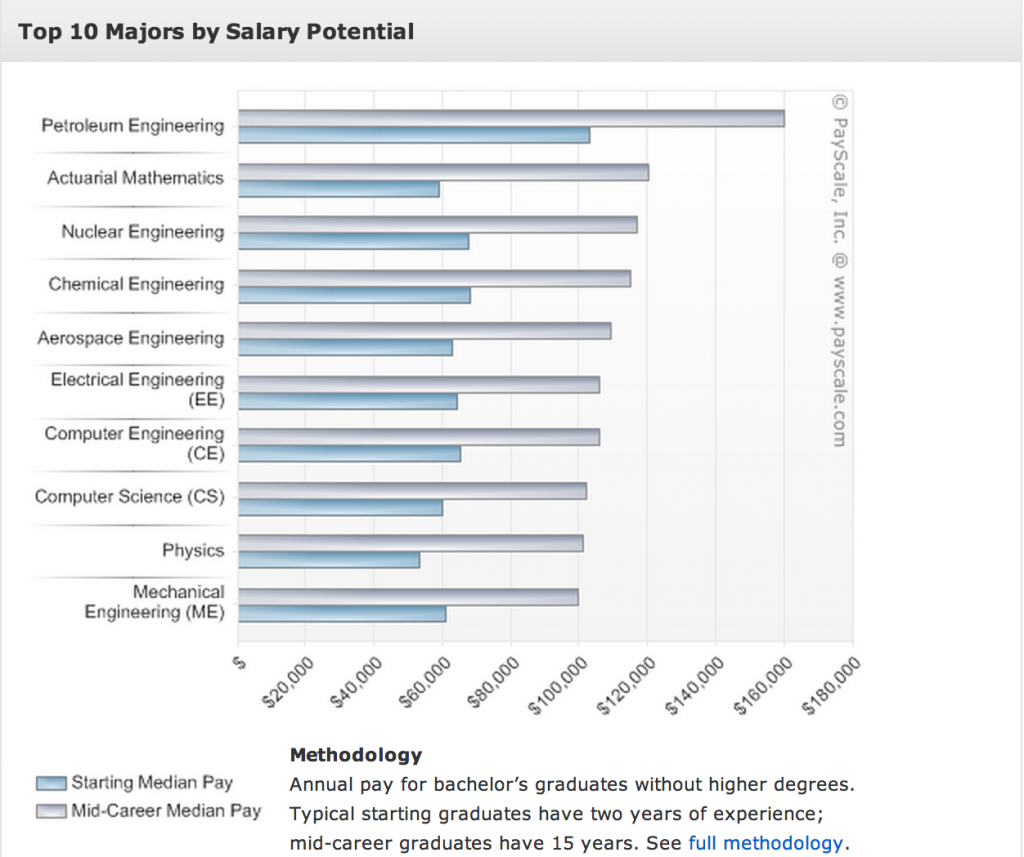

Nice post. Seems like everyone is thinking about college with graduation season!
One point to take into consideration is that there’s a selection effect at work. The average college attendee is smarter than the average non-attendee before entering college, which explains away at least part of the college premium. (Higher IQ -> higher wages -> people with more IQ go to college more -> college degree causes higher earnings!) Bryan Caplan also has some thoughts on the subject here.
I got an English degree. Debt-free but I used part of an inheritance and I worked, and spread the degree out over 8 years so I wouldn’t go into debt. Your thought on the Humanities degree is spot on. This degree isn’t going to make me anything. I’m thankful I didn’t go into debt, but I still spent a ton of money on this degree that I got because “I love English.” At the moment I have no aspiration to be a writer. Just a mom.
If you don’t have much debt, you don’t really have much pressure to work. I know I have to work for at least the next three years to pay off my debt.